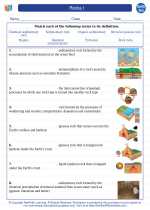Irrigation
Irrigation is the artificial application of water to land to assist in the production of crops. It is essential in areas with limited or unreliable rainfall, or during periods of drought. There are several methods of irrigation, each with its own advantages and disadvantages.
Types of Irrigation
- Surface Irrigation: Water is distributed over the soil surface by gravity. This method is simple and inexpensive, but can lead to water wastage and uneven distribution.
- Sprinkler Irrigation: Water is sprayed into the air and allowed to fall on the soil surface. This method is more efficient than surface irrigation, but can be costly to install and maintain.
- Drip Irrigation: Water is applied directly to the roots of plants through a network of pipes and emitters. This method is the most water-efficient, but requires careful monitoring and maintenance.
- Subsurface Irrigation: Water is applied below the soil surface, usually through buried pipes or tubes. This method reduces evaporation and water loss, but can be expensive to install and manage.
Importance of Irrigation
Irrigation is crucial for agriculture, as it ensures a consistent water supply for crops, leading to increased yield and quality of produce. It also supports food security and economic stability in regions where natural water sources are insufficient.
Environmental Impact
While irrigation is essential for food production, it can also have negative environmental impacts, such as depletion of groundwater resources, soil salinization, and habitat destruction. Sustainable irrigation practices and technologies are being developed to minimize these effects.
Study Guide
- What is irrigation and why is it important for agriculture?
- List and explain the different types of irrigation methods.
- Discuss the environmental impact of irrigation and the efforts to mitigate its negative effects.
- Compare and contrast the advantages and disadvantages of surface, sprinkler, drip, and subsurface irrigation.
◂Earth Science Worksheets and Study Guides High School. Rocks I
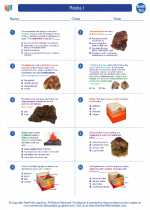
 Worksheet/Answer key
Worksheet/Answer key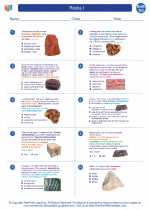
 Worksheet/Answer key
Worksheet/Answer key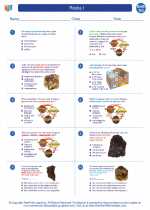
 Vocabulary/Answer key
Vocabulary/Answer key
 Vocabulary/Answer key
Vocabulary/Answer key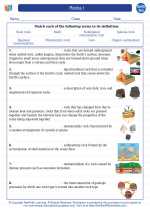
 Vocabulary/Answer key
Vocabulary/Answer key